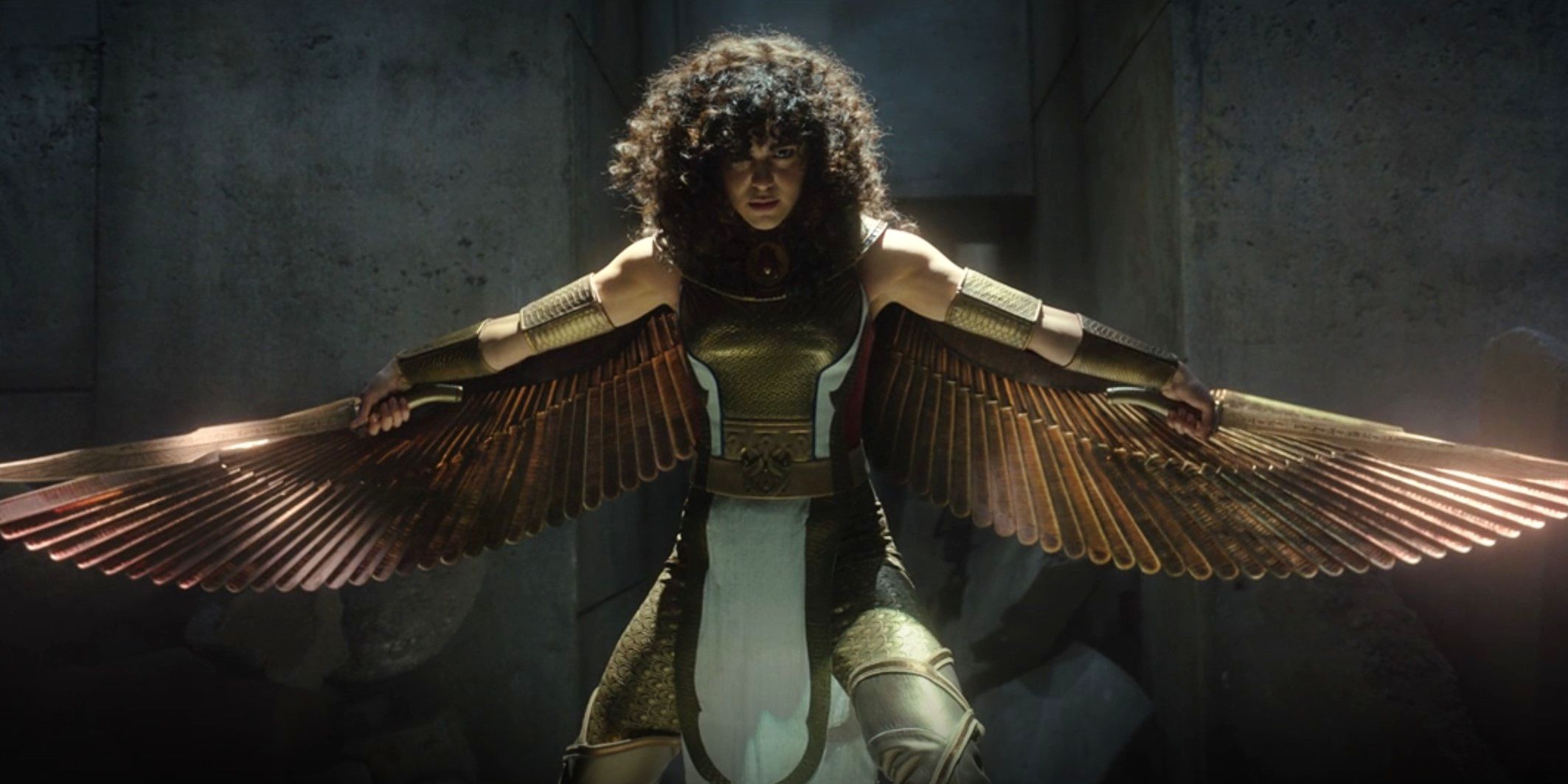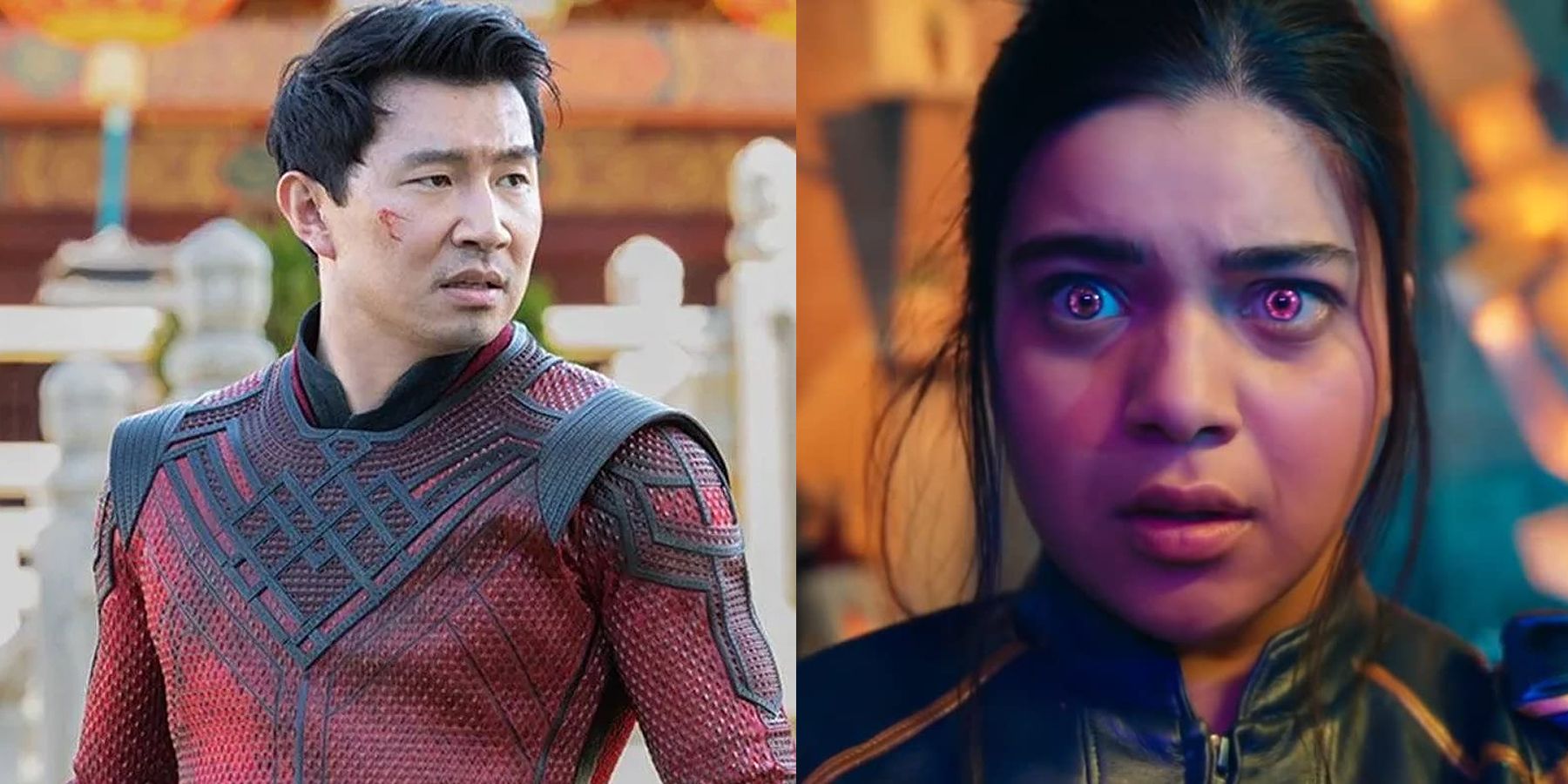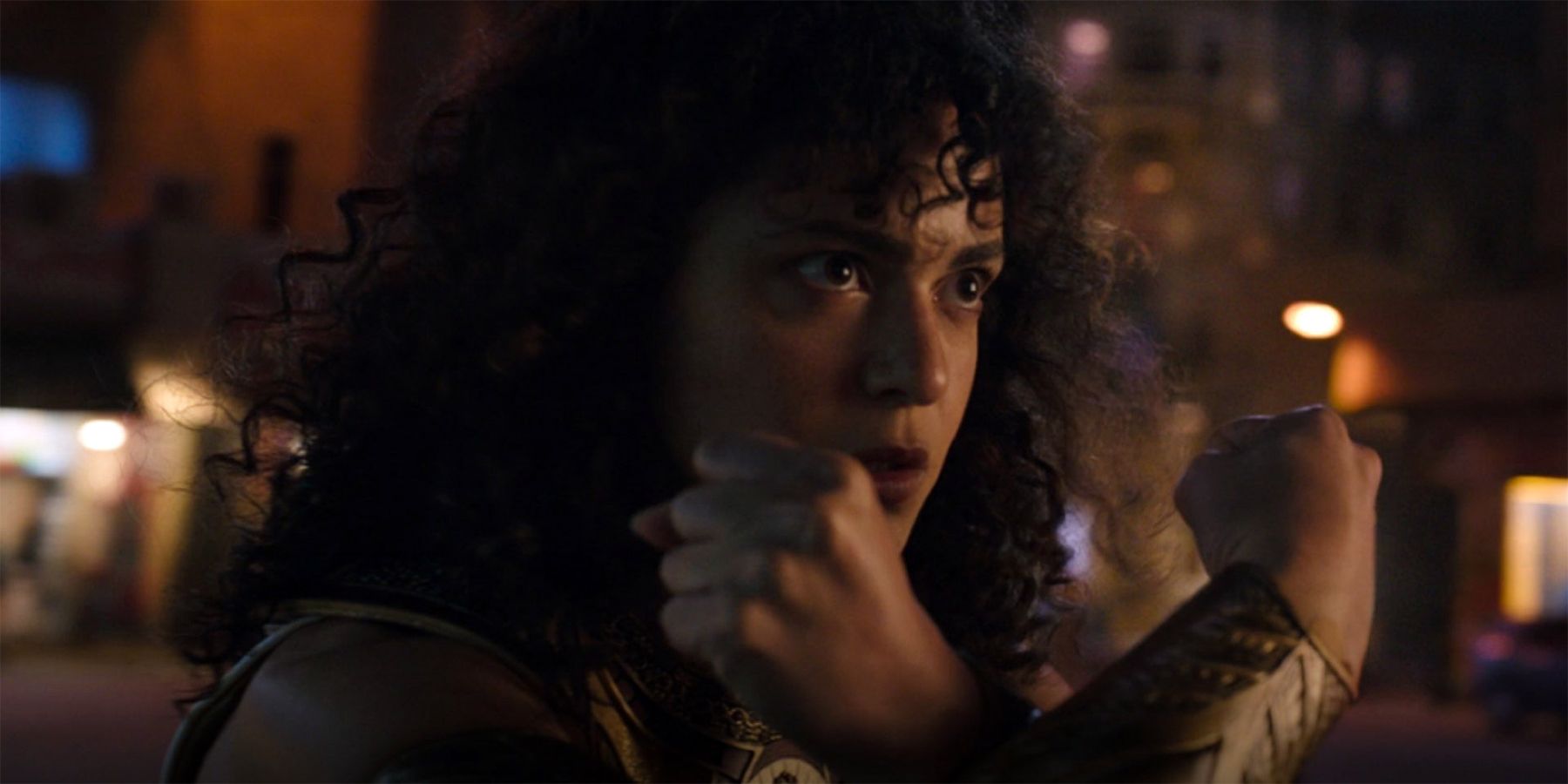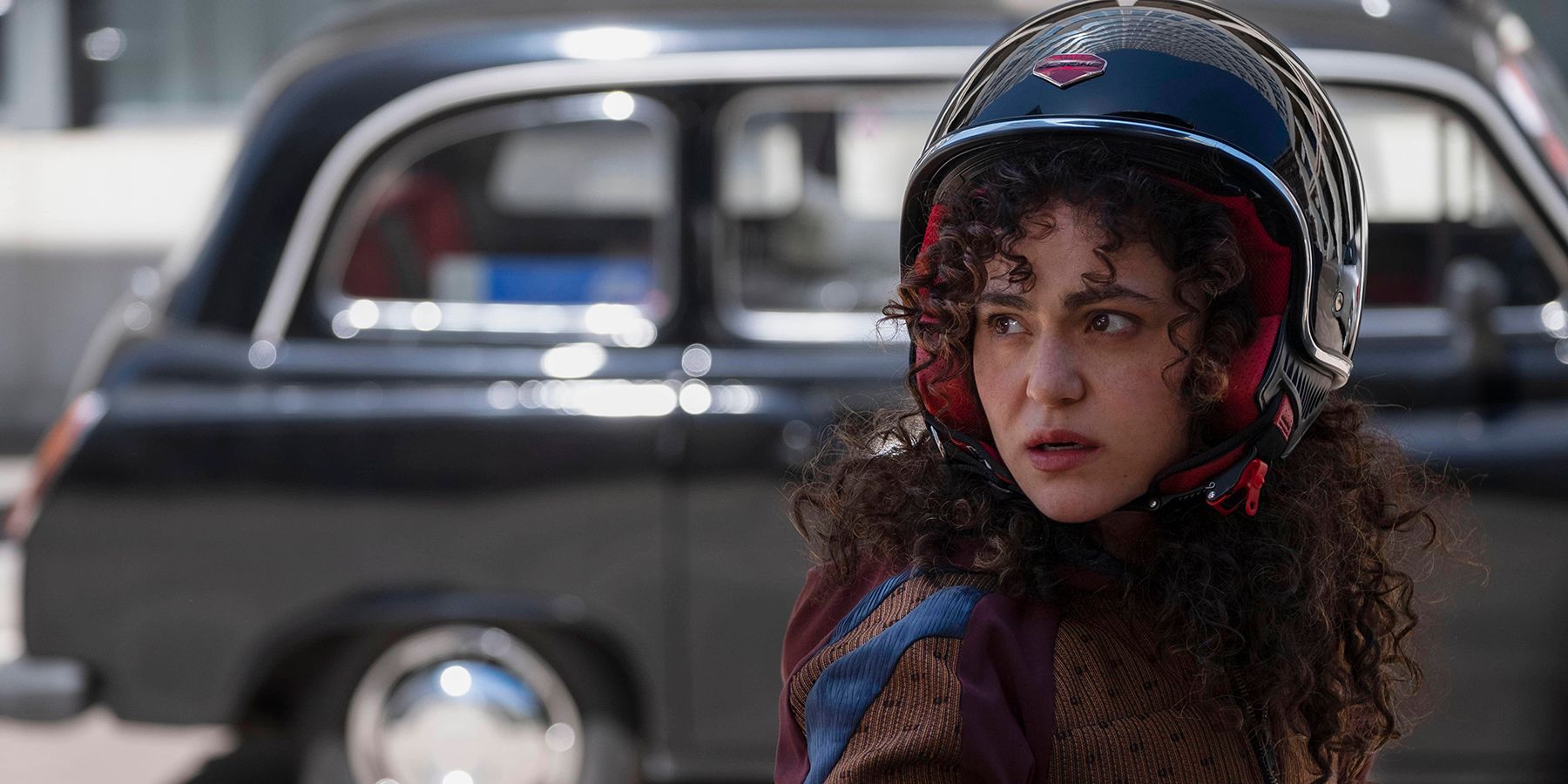The Moon Knight finale premiered on Disney Plus last week and was packed with Easter eggs, left fans wondering if there would be another season, and introduced a brand-new superhero to the Marvel Cinematic Universe. May Calamawy’s Layla El-Faouly was one of the integral characters in the series since it began, and was able to stand her own in several instances. The finale, however, gave her the superpowers that she was lacking thus far.
Despite having no superpowers throughout Moon Knight, El-Faouly defeated a Heka priest in Ammit's tomb, fought some goons on the camp belonging to Gaspard Ulliel’s Anton Mogart, a.k.a. Midnight Man, and even made her way out of Alexander the Great’s tomb. But, the moment to remember in the finale is when she chooses to become the goddess Taweret’s avatar and is revealed as the Scarlet Scarab from the Marvel Comics.
This was a defining moment for the MCU as Moon Knight introduced the first Arab and Egyptian superhero to the world. For years, Marvel has spoken about diversity in the MCU and has vowed to be more inclusive moving forward. As part of Phase 4, the MCU has already been living up to this promise and been quite diverse. The first Asian superhero was introduced in 2021 and the MCU will be adding the first South-Asian hero to its rather large roster with the upcoming Disney Plus series Ms. Marvel.
With Calamawy’s Scarlet Scarab being introduced in Moon Knight, it's a step in the right direction for the MCU. The series itself was unique as compared to its other MCU counterparts, with a diverse cast. Calamawy, who has Egyptian and Palestinian roots, was cast as a leading character, and the director, Mohamed Diab, is also Egyptian. The soundtrack reflects Arab culture, with many of the songs used in the credits being sung in Arabic.
When Calamawy’s version of the Scarlet Scarab is fighting Arthur Harrow’s followers in the finale, there is a moment when she rescues an Egyptian family in the nick of time. A young girl, who is witnessing her in action, looks up at her in awe and asks if she’s an “Egyptian superhero.” Calamawy’s Scarlet Scarab looks at her, and responds with an empathetic “yes.” The conversation, which is conducted in Arabic, might seem like a passing moment in an otherwise action-packed finale, but it is an extremely important scene. It reflects the diverse audience that was following the series, and journeying through the streets of Cairo, all while being able to relate to the culture represented on screen.
When Shang-Chi and the Legend of the Ten Rings released, it marked the MCU’s first Asian-superhero led project. In many of their interviews, the cast spoke about how many Marvel fans were finally able to relate to the hero that they saw on the big screen, and felt encouraged to be represented by one of the most popular platforms in the world. With Moon Knight, Marvel has done it once again and has allowed Arabs around the world to relate to Calamawy’s dynamic character. Even though it didn’t premiere on the big screen, Moon Knight has helped Arab fans of the MCU to see their culture as part of the extremely popular universe.
Fans of the Marvel Comics, however, will be able to recognize the creative liberty that Marvel took with the MCU’s version of the Scarlet Scarab. In the comics, the Scarlet Scarab first appeared in 1977 and was portrayed by a male character. The backstory revealed an Egyptian warrior named Abdul Faoul who received superpowers courtesy an artifact known as the Ruby Scarab. The hero was known as the protector of Egypt and possessed superhuman strength, the ability to drain another individual’s powers, the ability to fly, and was also able to shoot energy bolts.
In Moon Knight, El-Faouly speaks of her father, Abdullah El-Faouly, who was an archeologist with an affinity for scarabs. He was murdered, along with his crew, by one of Marc Spector’s colleagues. He is never confirmed as Faoul from the comics, but the similarity in their names had fans convinced that it was a hint toward the Scarlet Scarab. It helped that Calamawy’s El-Faouly was also in possession of the scarab that led Harrow to Ammit’s tomb after she made a deal with Taweret.
In the comics, Foul passes on the mantle of Scarlet Scarab to his son Mehemet. However, Abdullah in Moon Knight only had a daughter, Layla. In many ways, the character is entirely different from the comics, especially considering Layla is someone who was written specifically for the Disney Plus series and does not exist in the comics. Perhaps this is Marvel’s way of continuing the trend to offer female characters in the MCU a more powerful and important position. Phase 4 of the MCU has introduced many new female heroes, and given female characters a platform to showcase their powers more prominently.
Moon Knight fits perfectly into Phase 4 of the MCU and despite being unique, it sets up future projects in the universe. While the series is quite different from the typical MCU projects, it has helped the universe’s goal in becoming more inclusive and diverse in so many ways. It is definitely a success in Marvel’s books, and has paved the way for Ms. Marvel, the next series to arrive on Disney Plus.




